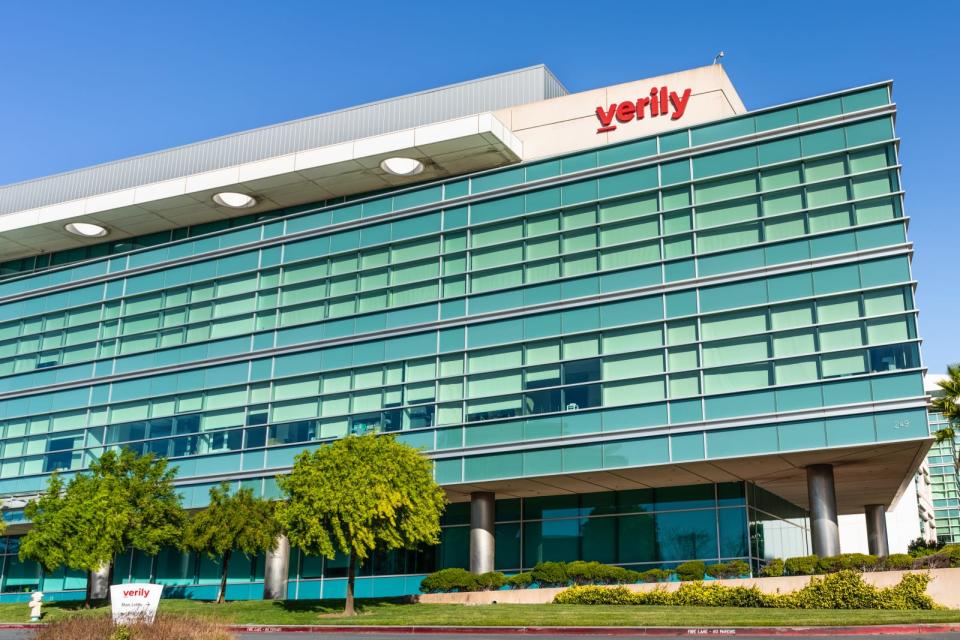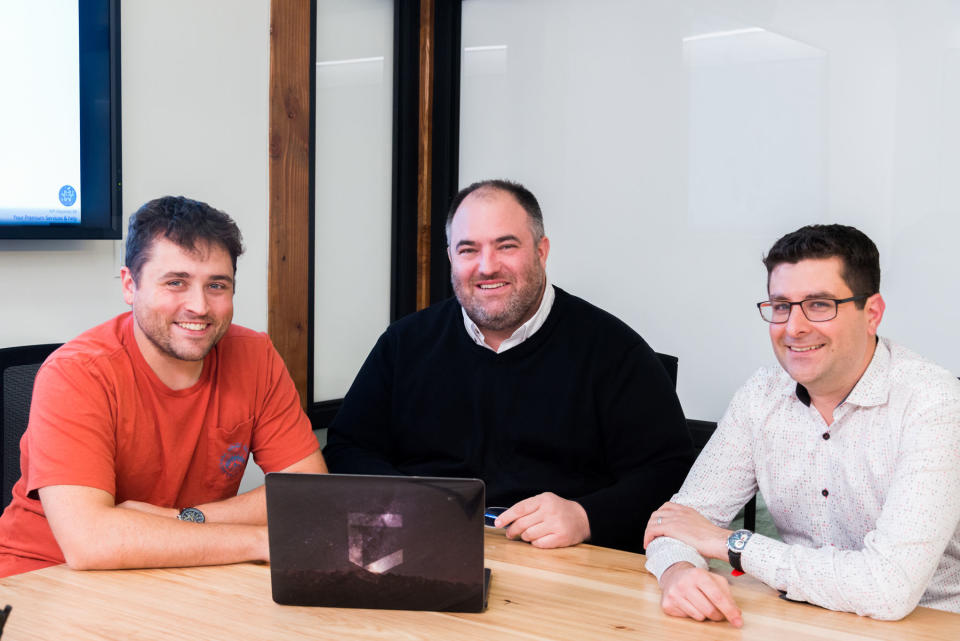Google parent Alphabet is pruning its 'other bets'
Makani, Jigsaw, Chronicle and Nest have all lost their 'other bet' status.
Alphabet is changing. The Silicon Valley super-company, which serves as an umbrella for Google and smaller, riskier subsidiaries known as "other bets," was established in August 2015. Executives hoped that the reshuffle would satisfy investors, who wanted a better understanding of Google's expanding business portfolio, and encourage each division to become financially successful and independent.
At the time, Alphabet had 10 companies under its purview: Google (Search, Android, YouTube and more), Access (Fiber broadband), Calico (aging), Capital (late-stage investment), DeepMind (artificial intelligence), Google Ventures (startup investment), Life Sciences (health), Nest (smart home appliances), Sidewalk (smart cities) and Google X, which still looked after Boston Dynamics (robots), Waymo (self-driving cars), Loon (internet balloons), Wing (delivery drones) and other so-called "moonshot" projects.
That list has been amended over the last four and a half years. Many Alphabet companies have simply rebranded -- Life Sciences has become Verily, for instance, Google Ventures is now GV and Google X has dropped the word Google from its name. Of greater importance, however, are the "other bets" that Alphabet has created, killed and casually moved under Google management. Surprisingly, these decisions have accelerated over the last 12 months, highlighting Alphabet's changing ambitions and just how difficult it is to turn a moonshot into a billion-dollar business.

Take Makani. The team was developing kites with tiny turbines that could be tethered to a stable structure -- a large boat or buoy, for instance -- and leverage the wind to generate energy. Google invested an undisclosed amount in 2007 and then, through its X factory, acquired the company six years later. Makani worked in the secretive laboratory before partnering with Shell and 'graduating' to Alphabet company status in February 2019. Last August, the team completed its first off-shore demonstration in the North Sea, roughly 10 kilometers away from Norway. But that wasn't enough for Alphabet management. Earlier this week, the company admitted that it was no longer confident in Makani's moonshot.
"After considering many factors, I believe that the road to commercial viability is a much longer and riskier road than we'd hoped and that it no longer makes sense for Makani to be an Alphabet company," Astro Teller, the head of X and chairman of Makani's board told TechCrunch. Fort Felker, CEO of Makani, said the company hoped to move forward and was "exploring options" with Shell. "To achieve a clean energy future we need to be open to exploring a diverse array of new renewable energy technologies, and that means pushing bold new ideas as far as possible, sometimes without a clear roadmap," he added.
Seven days prior, Alphabet had moved Jigsaw back under Google management. The technology incubator, which began as a think tank called Google Ideas, is tasked with developing solutions to disinformation, censorship, harassment and other societal issues online. During its four-year run as an Alphabet subsidiary, the team developed a tool called Assembler that can spot deep fakes and manipulated images. It also offered Project Shield, a tool designed to combat distributed denial-of-service (DDoS) attacks, to political organizations in Europe ahead of the EU parliamentary elections in May 2019.
Google didn't explain why Jigsaw had lost its 'other bet' status. Last July, however, a report by Vice's Motherboard team described the company as "a toxic mess" that was poorly managed and unable to retain talent. Jared Cohen, the founder and CEO of Jigsaw, told staff in a memo: "I'm deeply disappointed for all of you to see our culture characterized in this way. We haven't always gotten everything right, and as CEO, I take this responsibility seriously and I'm committed to ensuring we continue to improve." According to The Information, Cohen now reports to Kent Walker, Google's SVP of corporate affairs.
Alphabet has shown that it's not afraid to cut or relocate struggling subsidiaries.
Chronicle met a similar fate last year. The organization, which started as a project inside X, wanted to radically rethink cybersecurity. It was created by Mike Wiacek and Shapor Naghibzadeh, two members of Google's Threat Analysis Group (TAG), alongside Stephen Gillet, a former Symantec COO that was helping startups at Google Ventures. The company was announced in January 2018 and immediately spun out as an Alphabet subsidiary. In March 2019, it finally revealed its first product, Backstory, which acted as a giant dashboard, search engine and pattern recognition system for detecting cyber threats.
Everything seemed to be going well. Four months later, however, Google announced that Chronicle would be joining the Google Cloud team. In a blog post, Gillett said the merger would "allow us to take the next step on our journey" and "significantly accelerate our impact globally, together." By November, Wiacek had left Google and, according to Vice's Motherboard team, Gillett had moved into another role inside the company. That same Motherboard report said Chronicle employees felt betrayed and abandoned. "Chronicle is dead," an employee told the site. "Stephen and Google killed it."

Similarly, Nest was rolled under Google's hardware team in February 2018. The move made sense: Google had started making more home-related products, such as Assistant-powered speakers and smart displays, and wanted a consistent brand that stretched to intelligent thermostats and security cameras, too. Nest did, however, have its own corporate struggles while being led by Tony Fadell, a former Apple executive best known as the "father of the iPod." Fadell left Alphabet in June 2016, however, and was succeeded by former Motorola executive Marwan Fawaz.
Google isn't afraid to pinch specific teams from other Alphabet companies, either. Last September, the part of DeepMind focused on healthcare announced that it would be joining Google Health to advance its AI research. That team, to be clear, is separate from both Verily and Calico.
All of these changes suggest that the Alphabet structure isn't working. But for every lost subsidiary, another seems to have sprouted in its place. Waymo, for instance, graduated from X and became an official Alphabet company in December 2016. The team now offers an autonomous ride-hailing service in Phoenix, Arizona, and a factory of sorts formerly owned American Axle & Manufacturing Holdings Inc. in Detroit.
Fellow X projects Wing and Loon graduated in July 2018. Wing has pilot programs running in Christiansburg, Virginia, as well as Helsinki, Finland and North Canberra, Australia. Loon, meanwhile, has secured a few different contracts for its internet balloons.
Alphabet now has 12 companies -- two more than when it started in 2015. In its last earnings report, Alphabet said that its 'other bets' created $659 million in revenue, up from $595 million the previous year. For context, though, Alphabet's total revenue reached $161 billion last year, and $15 billion of that was generated by YouTube alone. The question, therefore, is how much patience CEO Sundar Pichai has for Alphabet's other bets, and which ones are most likely to emerge as meaningful businesses. The company has already shown that it's not afraid to cut or relocate struggling subsidiaries, which doesn't bode well for projects like Fiber, which stopped expanding years ago.
The only guarantee? In another five years, Alphabet's composition will have changed once again to reflect its evolving vision of the future and, more importantly, what technology will give staff and investors the greatest return.



